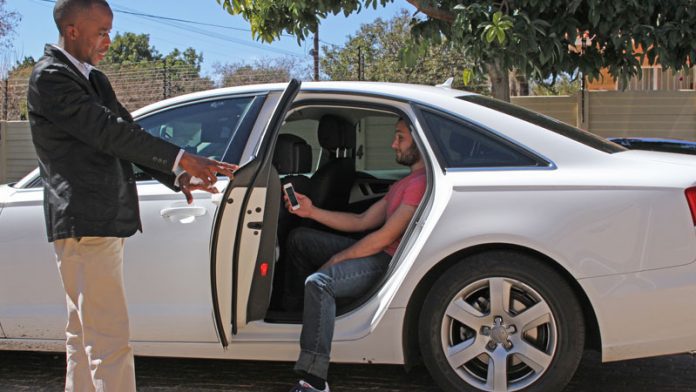The Competition Commission has received a letter from the Black Business Council (BBC) expressing dissatisfaction with Uber Technologies, a US e-hailing company with its headquarters located in San Francisco.
Through its app, which links drivers and passengers for a fee, the company, founded by Travis Kalanick and Garrett Camp, operates in more than 70 countries across the globe, including South Africa.
Elias Monage, the president of the BBC, has complained to Competition Commission commissioner Doris Tshepe about several issues, including Uber’s abusive and exploitative practices due to its larger market share.
“Uber is engaged in excessive pricing and exclusionary conduct in contravention of Section 8 of the Competition Act, 89 of 1998. Uber charges a commission for each trip undertaken through its Uber platform or Uber app,” wrote Monage.
“There is no transparency on how much commission it charges and how it is calculated or arrived at.
“The amounts fluctuate, but it starts at 25% and goes as high as 50% of every fare charged for a ride; 25% commission is excessive; anything above it is worse than excessive, and 50% is exploitative.”
Nationwide protest
He said while Uber bears the costs of maintaining and operating the platform, drivers pay for operating expenses, such as maintenance and fuel.
He claimed that although the Uber commission was half of the ride fare, the company’s expenses were not comparable to those of drivers.
“The BBC requests the commission to investigate if this commission doesn’t contravene Section 8[1][a] of the act. This has already sparked a nationwide protest by Uber drivers recently. Uber has to account for its charges.
“It has to be transparent and disclose its costs and profit margins so that a determination can be made that its commission is justifiable,” he said.
He further stated that Uber unjustly excludes drivers by blocking them from the Uber app.
“Blocking a driver from the Uber app prevents them from accessing the app and, consequently, from obtaining trips.
“In fact, the driver is blocked from participating in the Uber business and will not be able to generate any income anymore.”
Public driver’s permit
Monage also complained that Uber no longer allowed drivers to use a temporary public driver’s permit to work.
He invited the commission to investigate whether this does not amount to exclusionary conduct, which contravenes Section 8(1)(c) of the act.
“If Uber is allowed to exclude people from participating in the economy, this might cause social unrest, as the rate of unemployment of young black people in South Africa is alarming.”
He claimed that the exclusion was exacerbated by Uber’s requirement that operators only use the German business DEKRA for roadworthiness testing.
Although the commission acknowledged receiving the complaint, it has not yet provided an update on the next steps.




